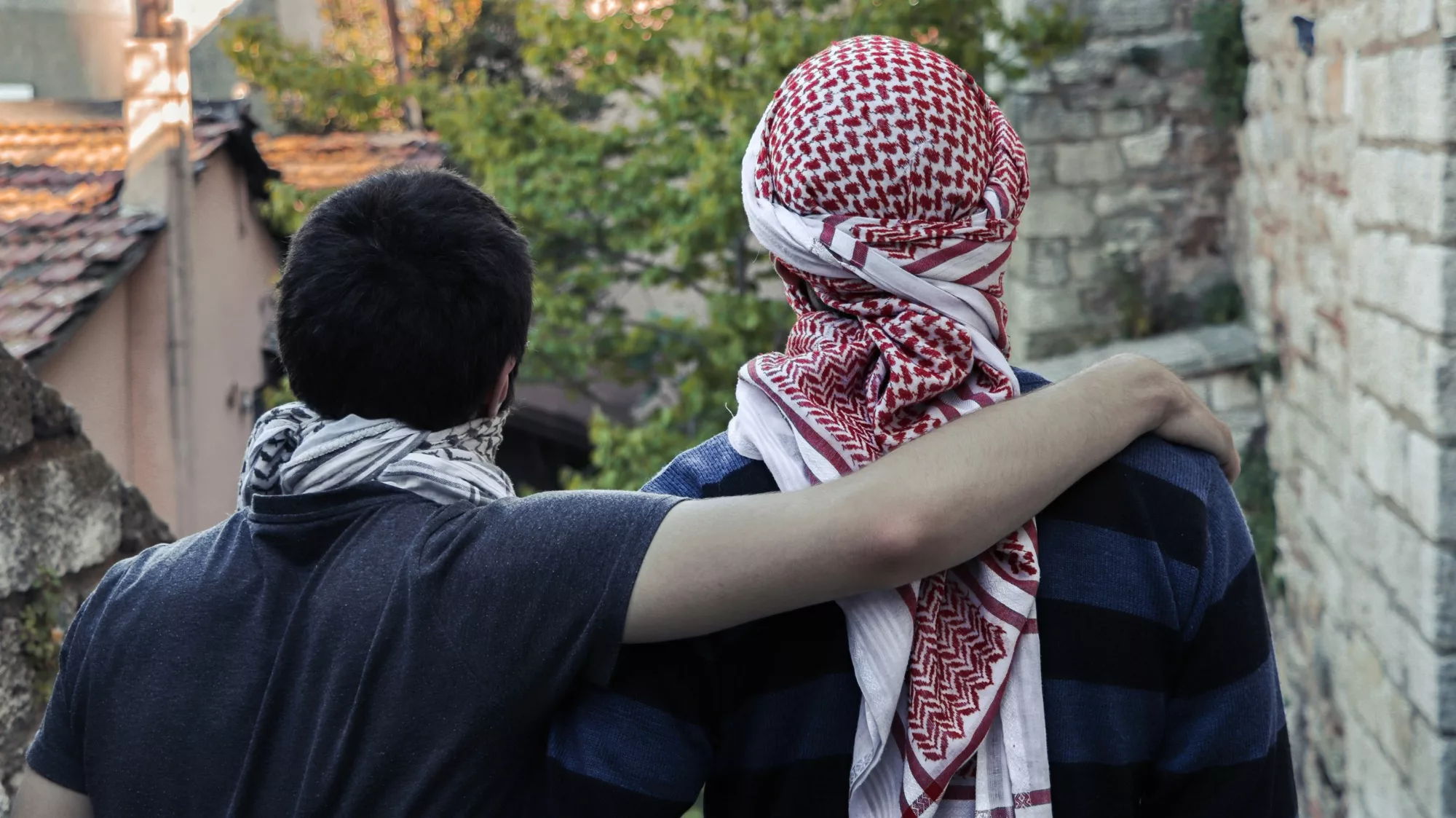The term “jihad” in Islam is often one of the most misunderstood and misrepresented concepts, both within and outside the Muslim world. For some, the word evokes images of conflict and warfare, while for others, it carries a deeply spiritual and personal significance. In truth, jihad is a multifaceted concept that goes far beyond its oversimplified portrayal in media or political rhetoric. Rooted in the teachings of the Quran and Hadith, jihad encompasses a wide range of meanings and applications, from inner personal struggles to broader efforts aimed at establishing justice and improving society.
This comprehensive exploration will delve into the true essence of jihad in Islam, addressing its linguistic origins, theological interpretations, historical applications, and contemporary misconceptions. By understanding the nuanced layers of jihad, readers can gain a clearer perspective on what this term truly signifies and its role in the lives of Muslims around the world.
The Meaning of Jihad: Its Linguistic and Theological Roots
To fully grasp the concept of jihad, it’s essential to first understand its linguistic and religious origins.
The Linguistic Definition of Jihad
The word “jihad” is derived from the Arabic root “jahada”, which means to strive, struggle, or exert effort. In its most basic form, jihad refers to any earnest endeavor or struggle, whether physical, mental, or spiritual. Linguistically, the term is neutral and does not inherently imply violence or conflict. It simply denotes striving toward a goal or overcoming a challenge.
In Arabic, the term “mujahid” (plural: “mujahideen”) refers to someone who engages in jihad, meaning they strive or struggle for a cause. Historically, this could range from defending one’s community to seeking self-improvement.
Theological Context of Jihad
In Islamic theology, jihad takes on a broader and more profound meaning. It is often described as a struggle in the path of God (fi sabilillah), emphasizing actions and efforts that align with divine guidance. The Quran and Hadith highlight jihad as a means to attain closeness to God, promote justice, and resist oppression.
Theologically, jihad is categorized into two primary forms:
- Greater Jihad (Al-Jihad Al-Akbar): This refers to the inner, spiritual struggle to overcome one’s ego, desires, and sins in order to live a righteous and God-conscious life.
- Lesser Jihad (Al-Jihad Al-Asghar): This pertains to external efforts, including striving to establish justice, protect the community, and defend against aggression when necessary.
It is critical to note that the “greater jihad,” or the internal spiritual struggle, holds a higher status in many Islamic teachings, underscoring the emphasis on self-purification and personal growth as central components of faith.
Types of Jihad: Exploring Its Diverse Dimensions
Jihad is a versatile concept in Islam and manifests in various forms, each with its own unique purpose and application. While often associated with warfare, jihad is primarily a nonviolent endeavor aimed at fostering personal and societal improvement.
1. The Inner or Spiritual Jihad
The greater jihad represents the continuous struggle within oneself to uphold Islamic principles and strive for personal excellence. This inner jihad includes:
- Resisting Sin: Overcoming temptations and refraining from actions that are prohibited in Islam.
- Seeking Knowledge: Striving to understand the Quran, Hadith, and other Islamic teachings to live a life guided by faith.
- Improving Character: Developing virtues such as patience, humility, compassion, and honesty while battling negative traits like greed, anger, and arrogance.
The Prophet Muhammad (peace be upon him) emphasized the importance of this form of jihad. After returning from a military campaign, he famously remarked, “We have returned from the lesser jihad to the greater jihad,” highlighting the greater challenge of conquering one’s ego and desires.
2. Social Jihad
Social jihad involves efforts to promote justice, alleviate suffering, and improve the welfare of society. This includes actions such as:
- Advocating for human rights and social justice.
- Supporting the poor, oppressed, and marginalized.
- Striving to eliminate corruption and establish ethical governance.
This type of jihad aligns with Islam’s broader emphasis on community service and the collective well-being of humanity.
3. Jihad of the Tongue and Pen
In Islam, the pen and the spoken word are powerful tools for spreading truth and combating ignorance. The jihad of the tongue and pen involves:
- Advocating for truth and justice through peaceful dialogue and education.
- Writing and speaking out against injustice, oppression, and misinformation.
- Engaging in interfaith and intercultural communication to foster understanding and harmony.
The Quran encourages Muslims to “invite to the way of your Lord with wisdom and good instruction” (Quran 16:125), underscoring the importance of peaceful persuasion and dialogue.
4. Jihad in Defense of the Community
The lesser jihad includes defensive measures to protect the Muslim community against external aggression or injustice. This form of jihad is subject to strict ethical guidelines and is only permissible under certain conditions:
- It must be a response to aggression or oppression.
- Noncombatants, such as women, children, and the elderly, must not be harmed.
- The ultimate goal should be peace, justice, and the protection of innocent lives.
Historically, this type of jihad was undertaken during the time of the Prophet Muhammad to defend the early Muslim community against persecution.
Misconceptions About Jihad
The concept of jihad has been widely misunderstood and misrepresented, particularly in modern times. These misconceptions have fueled stereotypes and contributed to Islamophobia. Let’s address some of the most common myths about jihad.
1. Jihad Is Synonymous with Holy War
One of the most prevalent misconceptions is that jihad exclusively refers to “holy war.” In reality, the term holy war does not exist in the Quran or Hadith. While jihad can include military efforts under specific conditions, it is far from its sole or primary meaning. Most references to jihad in Islamic texts pertain to personal struggles, social justice, and peaceful advocacy.
2. Jihad Promotes Violence
Some believe that jihad encourages violence against non-Muslims. This interpretation is incorrect and stems from a misunderstanding of Islamic teachings. The Quran explicitly prohibits aggression, stating: “Fight in the way of Allah those who fight you but do not transgress. Indeed, Allah does not like transgressors” (Quran 2:190).
Islamic teachings prioritize peace, coexistence, and justice. Defensive measures are only permitted when absolutely necessary and must adhere to strict ethical principles.
3. Jihad Targets Non-Muslims
Another misconception is that jihad involves hostility toward non-Muslims. On the contrary, Islam emphasizes the sanctity of all human life, regardless of faith. The Quran declares: “Whoever kills a soul unless for a soul or for corruption [done] in the land—it is as if he had slain mankind entirely” (Quran 5:32).
The concept of jihad, when properly understood, is not about conflict with others but about striving for justice, harmony, and mutual respect.
Jihad in Historical Context
Understanding jihad’s historical context is crucial for distinguishing its intended meaning from its misuse.
Jihad During the Time of the Prophet Muhammad
During the early years of Islam, the Muslim community faced severe persecution in Mecca. The Quranic verses revealed during this time emphasized patience, perseverance, and nonviolence. However, after the migration to Medina, circumstances changed, and Muslims were permitted to engage in defensive measures to protect themselves and their faith.
Notable examples include:
- The Battle of Badr (624 CE): A defensive battle fought by the early Muslim community against a larger Meccan army.
- The Treaty of Hudaybiyyah (628 CE): A peaceful agreement that highlighted the Prophet Muhammad’s commitment to diplomacy and conflict resolution.
The Misuse of Jihad in Later Periods
Over time, political entities and individuals have misused the concept of jihad to justify territorial expansion, personal ambitions, or acts of violence. These distortions contradict the ethical and spiritual principles of jihad as outlined in Islamic teachings.
The Role of Jihad in Modern Times
In today’s world, jihad continues to be relevant, though its application has evolved to address contemporary challenges.
Personal and Spiritual Development
For many Muslims, jihad is primarily a personal journey of self-improvement. It involves striving to maintain faith, uphold ethical values, and contribute positively to society.
Addressing Social Injustice
Muslims around the world engage in social jihad by advocating for human rights, fighting poverty, and working to eliminate inequality. Efforts such as community service, education, and environmental sustainability fall within this scope.
Combating Extremism
Modern jihad also involves challenging extremist ideologies and reclaiming the term from those who misuse it to justify violence. Muslim scholars, activists, and communities play an active role in promoting the true, peaceful essence of jihad.
Conclusion
Jihad in Islam is a deeply nuanced and multifaceted concept that goes far beyond its mischaracterizations as mere conflict or violence. Rooted in the principles of striving for justice, self-improvement, and societal betterment, jihad encompasses a wide spectrum of efforts, from personal spiritual growth to advocating for social change. While it includes defensive measures under strict ethical conditions, its primary focus remains on peace, compassion, and the pursuit of harmony within oneself and society.
By understanding the true meaning and purpose of jihad, we can move beyond the stereotypes and appreciate its role as a core component of Islamic faith and practice. In a world often marked by misunderstanding and division, exploring the authentic teachings of jihad serves as a powerful reminder of the universal values of justice, resilience, and striving for the greater good.




